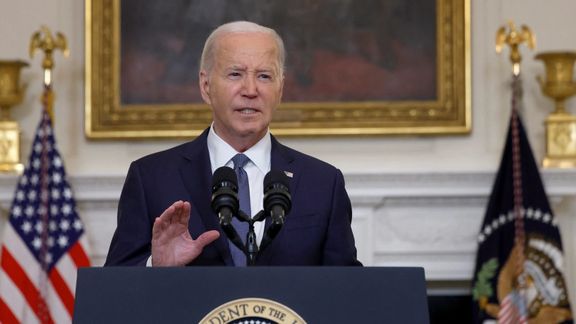"That's my expectation," President Joe Biden told reporters when asked if a truce between Israel and Hamas could stave off an Iranian assault, adding that while negotiations were "getting hard" he was "not giving up".
Reuters earlier in the day quoted unnamed Iranian officials as saying that Iran, along with its allies such as Hezbollah, is prepared to launch a direct attack if the Gaza talks fail or if Israel is seen to be dragging out negotiations. However, the timeline for how long Iran would wait before responding remains unclear.
The assassination of Haniyeh, for which Iran blames Israel, has escalated tensions in the region. Although Israel has neither confirmed nor denied its involvement, the US has deployed additional military assets to the Middle East to bolster Israeli defenses. Amid rising fears of a broader Middle East conflict following the killings of both Haniyeh and Hezbollah commander Fuad Shukr, Iran has engaged in intense dialogue with Western countries and the United States to manage the situation.
Iran has been threatening to launch a harsh retaliation against Israel that could lead to a regional war, but after two weeks of keeping the world in suspense no attack has taken place. In April, Tehran fired more than 300 missiles and drones at Israel in first such strike for an attack on its embassy compound in Damascus.
The Reuters report might be an indication that Tehran is withholding any retaliation expecting to receive diplomatic concessions in return. Some Iranian media and political figures began showing a more pragmatic stance a few days after Haniyeh's killing indicating the futility of military escalation.
US officials have been in discussions with allies to convince Iran to de-escalate tensions, with ceasefire talks expected to begin on Thursday in Egypt or Qatar. Despite these diplomatic efforts, Iran’s mission to the UN issued a statement expressing hope that any response to Haniyeh’s killing would be timed to avoid harming potential ceasefire talks. However, Iran's foreign ministry dismissed calls for restraint as contradictory to international law principles.
Iran's mission to the UN in New York told Reuters on Tuesday that Tehran would not have a representative present on the sidelines of the Gaza ceasefire talks. Two sources earlier told Reuters Iran was considering sending a representative to the ceasefire talks. However, they said the representative would not directly attend the meetings but would engage in behind-the-scenes discussions "to maintain a line of diplomatic communication" with the US while negotiations proceed.
The prospect of Iranian retaliation has kept both the US and Israel on high alert, with White House spokesperson John Kirby acknowledging that a retaliatory attack could occur as soon as this week, potentially impacting the ceasefire negotiations.
The potential ceasefire in Gaza presents a crucial moment for Iran, which may use it as cover for a more limited, symbolic response. This could allow Iran to fulfill its pledge of retaliation while avoiding a full-scale war that could further destabilize the region. Iran, which has not traditionally been involved in Gaza peace talks, is now considering a more active role, possibly through behind-the-scenes involvement rather than direct participation in the ceasefire negotiations.
According to the Iranian sources, Hezbollah and other allies may also launch their own responses to the killings of Haniyeh and Shukr, with Iran ready to support these actions. The details of what such support could entail remain unspecified. However, any Iranian response is expected to be more effective than previous actions, such as the missile barrage launched by Iran on April 13 following the killing of Iranian generals in Syria. That attack, which targeted Israeli airbases, was largely intercepted and did not achieve significant damage.
The situation remains highly volatile, with Tehran's reaction closely tied to the progress of the Gaza ceasefire talks and the broader regional dynamics influenced by the actions of Hezbollah, Iraq's militias, and Yemen's Houthis against Israel.









